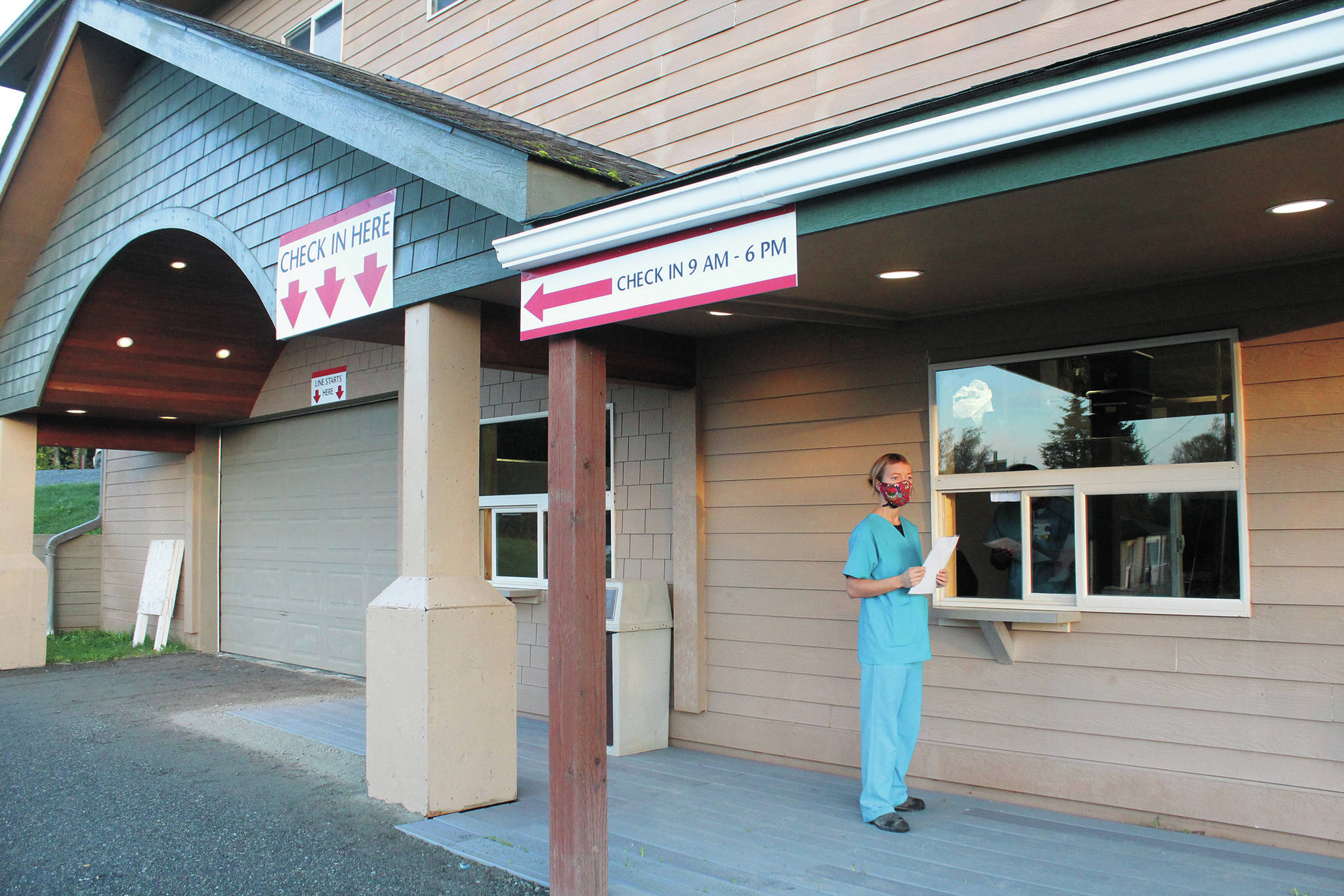Three Homer bars or restaurants announced temporary closures over the past week due to staff testing positive for COVID-19, and public health officials recommend businesses and families take a fresh look at how to slow the spread of the novel coronavirus.
On Sunday, Kharacters on Pioneer Avenue closed after one employee had symptoms and tested positive for COVID-19, and announced it on Facebook. On Tuesday, Beluga Lake Lodge also announced on social media that it was closing for several days after an employee tested positive. On Nov. 10, the Otter Room at the Best Western Bidarka Inn also announced on social media it was closing until Nov. 27 because an employee tested positive.
“To protect our community, we voluntarily shut down,” said Rondy Matthews, owner of Kharacters.
She said the employee, a younger woman, is feeling better. Kharacters made the announcement and shut down Sunday afternoon as soon as Matthews heard the employee tested positive.
Doug Johnson, owner of the Bidarka Inn and the Otter Room, said the employee got infected from another member.
“It wasn’t part of the bar crowd and the bar scene,” he said.
The Otter Room did a deep cleaning and in an abundance of caution decided to stay closed until after Thanksgiving.
“We’ll do what we can to make sure we don’t contribute to the spread any further — shut it down, slow it down as much as possible,” Johnson said.
Beluga Lake Lodge did not return messages seeking comment by press time.
“It’s a good time to run through scenarios,” said Homer Public Health Nurse Lorne Carroll. “What would I or we do if a positive popped up in the workplace? What if there were two? What if there was a cluster in Homer that was 200 strong?”
As of Wednesday, the southern peninsula from Ninilchik south has had 92 cases over the previous 14 days. Since the start of the pandemic in March, the southern peninsula has had 276 total cumulative positive cases.
In an email, Carroll wrote that all regions of the state are in high alert levels, meaning the average daily addition of new COVID-19 positive cases over the past 14 days is more than 1o cases per 100,000 population.
“In other words, there is widespread community transmission with many undetected cases, and frequent outbreaks that can’t be clearly connected to other COVID activity,” Carroll wrote.
In a phone call, Carroll said about 95% of public health nurses’ time is spent orchestrating contact tracing, with incidents in high-risk facilities like long-term care centers taking priority. The state has about 100 public health nurses and about 350 contact tracers, not all working full time. Contact tracers can’t get to everyone who might be a potential contact of a COVID-19 positive person, Carroll said.
Most cases come from secondary transmission within households, that is, from members of a family or social group who catch it from another member. How that person brings it into the home is often unknown.
“In most cases it’s technically impossible to determine the initial contact,” Carroll said.
Statewide, public health officials are reporting as high risk indoor spaces with poor ventilation where people are close together for extended periods, South Peninsula Hospital Public Information Officer Derotha Ferraro wrote in an email.
That can be a bar or a restaurant, but also meeting rooms, dining rooms and home kitchens, she wrote.
Carroll said that due to mitigation measures bars and restaurants are taking, public health officials haven’t seen a lot of close contacts of patrons reported — that is, people closer than 6 feet for more than 15 minutes with others not in their social bubble.
“It tells me from my experience businesses are doing a good job of rethinking how to do business that won’t increase (close) contacts,” he said.
Ferraro cautioned that one positive case in a business can result in the closure of a small business.
“That’s why it’s best to use every mitigation strategy one has available to prevent the exposure to begin with,” she wrote.
If an employee tests positive, that doesn’t necessarily means everyone should self quarantine, Carroll said. The business could have followed measures that prevented close contact, like people working in their own offices or more than 6 feet from each other, and wearing masks in public areas. However, a positive case in an employee is “a cue to start asking and answering who is a close contact,” Carroll said.
“It’s complicated because each business is very different in terms of the work they provide and also the context of the environment,” Carroll said. “Those are all important variables for transmission of the virus.”
But if there has been close contact, in an email Carroll wrote that the person should isolate themselves from others and notify close contacts and tell them to quarantine.
“If you have been in contact with someone during their infectious period or while they have been in isolation, then quarantine yourself for 14 days from your last contact exposure,” he wrote.
Carroll said that as the pandemic proceeds and case counts increase, people, families and businesses should continually monitor and evaluate their safety plans. That can mean maybe having some people working at home or spreading out more when moving outside a household social group.
“The idea of establishing a way to continually reevaluate COVID measures — it couldn’t be more important right now,” Carroll said. ” … It’s good to look at ways you can be even more resilient.”
For her part, Matthews at Kharacters said she’s glad other businesses are being proactive.
“I’m glad everybody’s doing the right thing,” Matthews said. “It is tough. It’s better than not dealing with it and getting mandatory locks downs because some people aren’t responsible enough.”
Reach Michael Armstrong at marmstrong@homernews.com.


